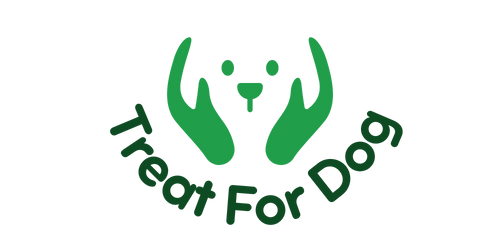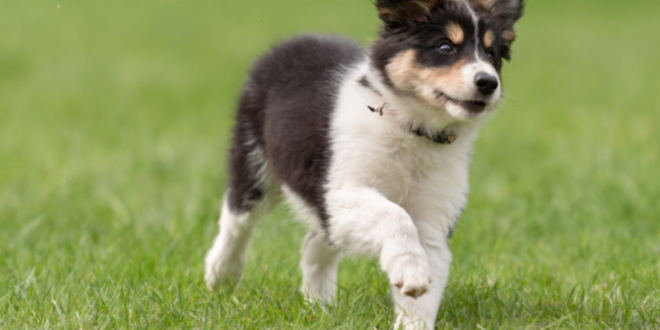At What Age Should A Dog Be Potty Trained – From the moment you bring home a new puppy, one of the most important steps towards becoming a responsible pet owner is potty training. While it may seem like a daunting task, with consistency and patience, your furry friend can learn to do their business outdoors or on a designated indoor spot. However, the question of when to begin potty training and when a dog should be fully trained can depend on a variety of factors. In this article, we will explore the ideal age for potty training and some tips on how to ensure your pup becomes a bathroom-pro.
Table of Contents
1. Potty Training for Pups: When to Start?
Potty Training for Pups
Knowing when to start potty training for your pup can be a bit tricky, but it’s an important step in helping your furry friend become a well-behaved member of your household.
Here are a few things to keep in mind:
- Age: Generally, puppies can start potty training as early as 12-16 weeks old. However, some breeds may mature faster than others.
- Behavior: Puppies will start to signal when they need to go outside. This includes sniffing around, circling, and whining. It’s important to pay attention to these signs and take them outside immediately.
- Consistency: Potty training takes time and patience. It’s important to establish a routine and stick to it. This means taking your pup outside at the same times every day, and rewarding them for going potty outside.
Keep in mind that accidents will happen. It’s important to be patient and not punish your pup for mistakes. Instead, redirect them outside and reward them for going potty outside.
Remember, potty training is an important step in helping your furry friend become a well-behaved member of your household. With consistency, patience, and positive reinforcement, your pup will be potty trained before you know it!
2. The Age Old Question: When Should You Potty Train Your Dog?
Timing Is Key
Potty training a dog is an essential part of pet ownership. It can mean the difference between a happy and healthy household or one fraught with accidents and unpleasant surprises. So, how do you know when it’s time to start training? The answer varies based on several factors.
Age and Breed
The age and breed of your dog can play a role in determining when to begin the potty training process. Certain breeds, like Chihuahuas and Yorkshire Terriers, have small bladders and may need to go more frequently than other breeds. As a general rule, puppies should begin training between 12 and 16 weeks of age, regardless of breed. Older dogs can also be trained, but it may take longer and require more patience.
Behavioral Cues and Signals
Watching for behavioral cues and signals can be an indicator that it’s time to begin potty training. If your dog is sniffing around, circling a particular area, or going to the door, these are all good signs that they need to go. Additionally, if your dog has gone a certain amount of time without eliminating, it’s essential to take them outside to prevent accidents indoors. It’s important to be consistent with your dog and create a routine that works for both of you. With patience and perseverance, your pup will be trained before you know it.
3. Teaching Your Furry Friend to Use the Loo: A Guide to Potty Training
Potty training your furry friend can be a daunting task, but with patience and consistency, it can be achieved. Here are some tips to teach your furry friend to use the loo:
– Start by introducing your furry friend to the designated potty area and use a command phrase like “go potty” or “do your business.” Use this phrase consistently every time you take them to the potty area.
– Keep a consistent schedule for potty breaks, especially after meals and playing. Pups may need up to eight potty breaks a day.
– Reward your furry friend with treats and praise every time they successfully potty in the designated area. Positive reinforcement goes a long way in potty training.
Remember that accidents will happen, but never punish your furry friend for accidents. Instead, clean up the mess with an enzymatic cleaner to eliminate the odor, so they don’t revisit the spot.
With time, patience, and consistency, your furry friend will soon be potty trained and using the loo like a pro.
4. From Puppyhood to Adulthood: The Different Phases of Potty Training
The journey from puppyhood to adulthood is an exciting one. However, there are a few phases that your furry friend has to go through, and potty training is one of them. This process can be both exciting and frustrating, but it’s an essential part of your dog’s development. Here are the different phases of potty training.
– Phase 1: Introduction to Potty Training
During the early weeks of puppyhood, your furry friend will start exploring their new surroundings, and accidents will happen. When introducing your puppy to potty training, start with a designated potty area. Use a cue word such as “potty” and take your puppy out after every meal, nap, or playtime. Be patient; this phase may take weeks or even months.
– Phase 2: Reinforcement
The second phase of potty training begins when your puppy starts to understand where their potty area is. At this point, you can begin to use reinforcement techniques such as treats and praise. By rewarding your puppy every time they go potty in the designated area, you are reinforcing good behavior.
– Phase 3: Consistency
As your puppy grows, their bladder control will improve. However, the consistency in potty training is essential. Your furry friend will still need to go out regularly, especially after sleeping, eating, or playing. Keep the designated area clean, use positive reinforcement, and continue to be patient. Remember that accidents happen, but with consistency, your furry friend will master potty training in no time.
In conclusion, the potty training journey is different for every puppy. However, with patience, positive reinforcement, and consistency, your furry friend will learn to go potty in the designated area, and accidents will become a thing of the past.
5. The Golden Rule: At What Age Should Your Dog Be Fully Potty Trained?
When it comes to potty training your furry friend, it can be like a game of roulette as to when they’ll be fully trained. However, there are a few things to keep in mind that can help speed up the process and get your doggo housebroken in no time!
Firstly, it’s important to remember that every dog is different and that age isn’t necessarily a determining factor for when your pooch will be potty trained. However, typically, dogs should be fully potty trained by the time they are six months old.
To help speed up the process, it’s crucial to establish a consistent routine for your pup. This means taking them out regularly, preferably at the same times each day, and rewarding them for going potty outside. Consistent training and positive reinforcement will go a long way in getting your dog on the right track. Additionally, crate training can be helpful for when you can’t supervise your pup, as most dogs don’t like to go potty where they sleep.
Remember, patience is key when potty training your canine companion. It can take a few weeks to a few months for them to be fully trained, but with consistency and positive reinforcement, your furry friend will be housebroken in no time.
The process of potty training a dog is not always an easy one, and it’s important to remember that each pooch is different. But by creating a comfortable, consistent atmosphere, being patient, and starting at the right age, you can ensure that your pup develops healthy, clean habits. With the right approach, training your pup to use the toilet should be easier than ever!
 Treat For Dog – Brain Training for Dogs, Dog Training & Obedience Discover Treat For Dog and get your pup on the path to smarter, happier, and healthier living with brain training for dogs.
Treat For Dog – Brain Training for Dogs, Dog Training & Obedience Discover Treat For Dog and get your pup on the path to smarter, happier, and healthier living with brain training for dogs.




